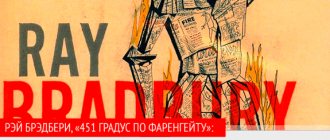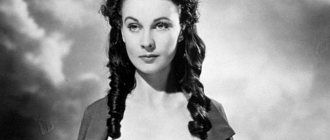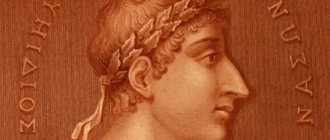Quotes from Nikolai Gumilyov
Yes, knowledge is sweet honey, but knowledge will not save, When the law calls and the time comes.
There is God, there is the world, they live forever, And the life of people is instantaneous and miserable, But everything is contained within a person, Who loves the world and believes in God.
The poet's hot heart Shines like ringing steel.
And now there are still prophets, Although the altars have fallen, Their eyes are clear and deep With the coming flame of dawn.
And that's all life! Whirling, singing, Seas, deserts, cities, Flickering reflection of the Lost forever.
What a strange bliss In the early twilight of the morning, In the melting of spring snow, In everything that perishes and is wise.
Only heaven knows the limits of our strength, Posterity will weigh who hid how much...
The best girl can't give more than what she has.
Better blind Nothing Than golden Yesterday!
I dream that they would say About Russia, the land of the plains: This is the land of the most beautiful women and the bravest men.
The world is only a ray from the face of a friend, everything else is his shadow!
Dreams are born in vain, Blood is agitated in vain: I can inspire compassion, I cannot inspire love.
You will not be saved from the bloody share that the firmament has destined for the earthly. But be silent: the incomparable right is to choose your own death.
There is no end to vows and betrayals, There is no end to cheerful changes, And the laggards are driven again by the Scourge of pain, Hunger and Love.
Neither the rustle of the midnight distance, nor the songs that the mother sang, We never understood, What was worth understanding. Don’t trust your dreams to anyone, Oh, you can’t tell them without ruining them! What you know, know for yourself.
But the most beautiful thing is the thirst for glory, For it kings will be born, Ships sail in the oceans.
But we have forgotten that only the word shines in the midst of earthly anxieties. And in the Gospel of John it is said that the Word is God.
Oh, Rus', harsh sorceress, You will take yours everywhere. Run? But do you really love something new, or can you live without you?
Beautiful is the wine we love, And the good bread that sits in the oven for us, And the woman with whom it is given, Having first been exhausted, for us to enjoy.
Like thunder hammers Or the waters of angry seas, The golden heart of Russia beats rhythmically in my chest.
The fierce sun, the threatening sun, God walking in the spaces,
Crazy face, Sun, burn the present in the name of the future, but have mercy on the past! It’s so scary to hear in silence the Steps of an unknown god.
Only snakes shed their skins so that the soul grows old and grows. We, alas, are not like snakes, We change souls, not bodies.
Only the tired are worthy of praying to the gods, Only those in love are worthy to step on the spring meadows!
You saw the Muse of Distant Journeys in all her finery. Flattering reproaches and the buzz of praise are equally not needed for creative shrines...
I feel that autumn will soon come, the work of the sun will end, and people will pick golden, ripe fruits from the tree of the spirit.
Christ said: the poor are blessed, the fate of the blind, the crippled and the poor is enviable, I will take them to the villages above the stars, I will make them knights of heaven And I will call them the most glorious of the glorious...
I believed, I thought, and the light finally shone for me; Having created, the Creator forever surrendered me to fate; I'm sold! I am no longer God's! The seller left, and the buyer looked at me with obvious mockery.
I know that the trees, and not us, are given the greatness of a perfect life, on the gentle earth, sister to the stars, We are in a foreign land, and they are in their homeland.
I, the bearer of great thought, cannot, cannot die.
I’ll drop my body into a chair, I’ll block the light with my hands, And I’ll cry for a long, long time, Remembering the evenings When “yesterday” didn’t torment And the chains of debt didn’t torment me...
Share link:
Liked this:
Like
Similar
Other similar
LiveInternetLiveInternet
Sunday, October 06, 2013 07:10 + in the quotation book Nikolay Gumilyov through the eyes of Anna Akhmatova
When reading the memoirs and opinions of Anna Andreevna about her ex-husband below, you should keep in mind at least two important circumstances: firstly, there are always inaccuracies in any memories; secondly, Pavel Nikolaevich Luknitsky (1900-1973), who recorded Akhmatova’s statements in the early twenties of the 20th century, did this at home after returning from A.A., and this could also have caused some errors. "Judith"
- Akhmatova recalled that in the winter of 1913, Gumilyov wrote almost no poems at all: “I remember only one poem during this time - “Judith”... He did a lot of translations... Gautier and others.” Another time, while analyzing a draft of “Judith,” Akhmatova said: “Interesting, note: Nikolai Stepanovich’s Judith is a girl. After all, in fact, she was a widow. For Nikolai Stepanovich - all girls. Women don't exist for him. Would it be worth writing about a woman!”
"Trees"
- Regarding Gumilev’s poem “Trees,” Akhmatova recalled: “In Tsarskoe Selo, opposite the window of the room in which we lived, a tree grew; it cast a shadow and kept the sun out. Someone suggested cutting down the tree. Nikolai Stepanovich: “No, I won’t allow anyone to cut down the tree. How can you cut down trees?”
Meeting Mayakovsky Mayakovsky really wanted to meet Gumilyov, and their acquaintance took place in 1912. This event was preceded by a funny story. When Nikolai Stepanovich was told that the young poet Mayakovsky wanted to meet him, Gumilyov replied that he had nothing against such an acquaintance, “but only if Mayakovsky did not speak ill of Pushkin.” It soon became clear that Mayakovsky had not yet said anything bad about Pushkin, and the two poets met. At a charity evening
- In the summer of 1915, Akhmatova, together with Gumilyov, attended a charity evening organized by Fyodor Kuzmich Sologub (Teternikov, 1863-1927) in favor of exiled Bolsheviks. Tickets for the evening cost 100 rubles. “All the rich people” of St. Petersburg gathered, and in one of the first rows sat the banker Dmitry Leonovich Rubinstein (1876-1937), whose connections with the Bolsheviks can be traced even after 1917. Sologub organized such evenings every year. Akhmatova read her poems at this evening, but Gumilyov did not, since he was in military uniform and it was inconvenient for him to speak.
Birth of Lyovushka
- The famous scientist Lev Nikolaevich Gumilyov was born on October 1 (14), 1912. The Gumilyovs then lived in Tsarskoye Selo. At night, Anna Andreevna felt tremors, then realized that she would soon have to give birth, and woke up her husband: “It seems that we need to go to St. Petersburg.”
The Gumilyovs walked from the station to the maternity hospital, since Nikolai Stepanovich was confused and forgot that he could take a cab or take a tram. At 10 o'clock in the morning they were already at the maternity hospital on Vasilyevsky Island. In the evening Nikolai Stepanovich disappeared and was absent all night. The next day, in the morning, Anna Andreevna received many congratulations on the birth of her first child, and someone pawned Gumilyov, as if accidentally telling him that he had not spent the night at home. Later Nikolai Stepanovich came, congratulated his wife and presented a “witness” of his stay at home. He was immediately exposed and very embarrassed. Gumilyov exotica
- left Anna Andreevna, at best, indifferent. After all, Akhmatova literally hated all southern and eastern exoticism, therefore, when Gumilyov returned from distant travels and began to describe his travels, Anna Andreevna went into another room: “Tell me when you finish telling.”
Loving Russia...
- Nikolai Stepanovich once turned to Akhmatova with the words: “You taught me to love Russia and believe in God.”
[I did not find where and when he did this.] When Luknitsky reminded Akhmatova of this, she thoughtfully replied:
- “I don’t know if I... I learned, in any case, because this didn’t happen before. Revolution is deeply alien to him, even pure ideas. I went abroad."
[The formula “Love Russia and believe in God” was born when Emperor Alexander III answered the question of his son, the future Nicholas II, how to be a good emperor.] Dream and Kozma Prutkov Akhmatova recalled:
- “At dinner at one of the Workshop meetings in 12-13, talking with neighbors, I said: “What a dream I had recently - wonderful!”
Nikolai Stepanovich from a distance, very respectfully, politely, said:
- “Feeling boundless respect for you...”
etc." Luknitsky noted in his notes that this is a quote from Kozma Prutkov. Probably Anna Andreevna’s memory failed her, and Luknitsky was too lazy to check the accuracy of the quote. In Prutkov’s play “The Reckless Turk, or: Is It Pleasant to Be a Grandson?” the text reads:
- “Having due respect for you for some time now, I ask you... on behalf of all our guests... to keep silent about this dream.”
February 1917
- Gumilyov was completely indifferent to the February Revolution. On February 26 or 28, he called Akhmatova and said: “There are chains here, you can’t get through, and therefore I’ll go to Okulovka now...”
Akhmatova added to this memory:
- “He spoke about it very calmly - indifferently... Still, he understood very little about politics...”
Purpose
- All the people surrounding Gumilyov were, according to Akhmatova, destined for something: “For example, O[[sip]andelstam had to write poetics, A.S. Sverchkova – children’s fairy tales (she wrote them anyway, but Nikolai Stepanovich also confirmed her in this).” Gumilyov appointed Akhmatova to write prose, asked and convinced her. The matter ended with the fact that “one day Nikolai Stepanovich found a notebook with a piece of prose [[written by A.A.] and read this passage; he said: “I will never ask you to write prose again...”
Alexandra Stepanovna Sverchkova (1869-1952) is Gumilyov’s half-sister on her father’s side, Stepan Yakovlevich Gumilyov (1836-1910), from his first marriage. Later entourage of Gumilyov
- Akhmatova was very disapproving of most of the people who surrounded Gumilyov in the last years of his life - Georgy Ivanov, Otsup and others - and believed that N.S. he himself created evil spirits around himself. She indignantly told Luknitsky: “And with such people N.S. was surrounded! Of course, he didn't see all of this. He saw them as they tried to appear to him. Can you imagine Otsup, who in the next room asks the bartender for a bribe for introducing him to Gumilyov, and then enters N.S. and starts “classical conversations” with him about Racine, about Rabelais... And N.S. about Otsup: “Yes, he understands Racine!”...
Georgy Vladimirovich Ivanov (1894-1958) - Russian poet. Nikolai Avdeevich Otsup (1894-1958) - Russian poet and translator. Little things Nikolai Stepanovich said:
- “It’s so easy to pee on the train that I don’t even like doing it.”
Akhmatova kept a Novgorod icon in a small box along with other items - the only gift she had left from Nikolai Stepanovich Gumilyov. .
Series of messages “Meetings with A.A.
Akhmatova": Part 1 - Meetings with A.A. Akhmatova Part 2 - “Is this already a translation or just an interlinear translation?” ... Part 15 - we will see Akhmatova through the eyes of the wonderful linguist Vyacheslav Vsevolodovich Ivanov Part 16 - Akhmatova spoke about Vyacheslav Ivanov with undisguised pleasure: Part 17 - Nikolai Gumilev through the eyes of Anna Akhmatova Part 18 - Akhmatova about Blok Part 19 - About Tsvetaeva ... Part 37 - Visit to Tashkent (second version) Part 38 - March 5 is the day of memory of Anna Andreevna Akhmatova. “Poem without a hero” Part 39 - “The eyes of the Virgin Mary are similar to yours”
| Categories: | Readings and reflections at the book school |
Tags:
Nikolay Gumilyov
Cited 1 time Liked by: 7 users
Like share
0
Like
- 7
I liked the post - Quoted
- 0
Saved
- Add to quote book
- 0
Save to links
Liked7
0
Gumilev: life after death
How the literary biography of the poet developed after the execution: from the memories of contemporaries to evolutionary equations
Author Alexander Piperski
Nikolay Gumilyov. Drawing by Nadezhda Voitinskaya. 1909 © DeAgostini / Getty Images
Nikolai Gumilev was executed in August 1921, but his dramatic literary biography did not end there. In this, the poet was helped both by his contemporaries, who almost immediately rushed to write memoirs about him, and by the Soviet government, which, by not allowing the poet’s poems to be published, only fueled interest in his work.
The poet died when many of his contemporaries were still alive, and this allowed him to become one of the most popular figures in memoirs, even if not always trustworthy. Literary critic Roman Timenchik collected several interesting stories that developed around the name of Gumilyov after his death in his article “Posthumous Scandals of Gumilyov.” It sets out, in particular, the memories of contemporaries about the duel with Voloshin in 1909 and about Gumilyov’s brief infatuation with Marietta Shaginyan.
Immediately after Gumilyov’s death, poems dedicated to him began to appear, for example, “In Memory of Gumilyov” by Irina Odoevtseva:
We read about his death. Others cried loudly. I didn’t say anything, And my eyes were dry.
In 1925, his colleague in the “Workshop of Poets” Sergei Gorodetsky also wrote a poem in memory of Gumilyov. True, this work is more like a lampoon than an epitaph, since its content boils down to criticism of the deceased who did not support the October Revolution:
When the all-human revolt arose in the huge city, he wandered through the cold rooms, muttering that there was only a pound of bread.
And under the angry glow I didn’t catch anything, I didn’t follow anything, I only talked about retribution and translated the translation.
In 1939, a book of memoirs by Vladislav Khodasevich “Necropolis” was published.
It contains the chapter “Gumilyov and Blok” - Khodasevich’s only paired biographical portrait in the spirit of Plutarch. Against the background of Blok’s reverent portrayal, Khodasevich’s Gumilyov does not look very attractive, no matter how the memoirist tries to claim the opposite (the phrase “There was a lot of good in Gumilyov” is already enough to understand that these memories are not laudatory). The main features of Gumilyov, which Khodasevich draws attention to, are his childish character and penchant for props. Irina Odoevtseva (real name Iraida Geinike) © dic.academic.ru
“But as soon as I close my eyes and imagine Gumilev, Blok, Mandelstam, and I immediately see their faces, surrounded by radiance, like the faces of saints on icons,” writes in in her book “On the Banks of the Neva,” published in 1967 in Paris, Irina Odoevtseva. It is not surprising that with such an attitude, her portrait of Gumilyov turned out to be much more attractive than that of Khodasevich, although her first impression of Gumilyov does not at all characterize his appearance in the best way: “It is difficult to imagine an uglier, more special person. Everything about him is special and especially ugly. An oblong head, as if elongated upward, with an excessively high flat forehead. Clipper-cut hair of indeterminate color. Liquid, moth-eaten eyebrows. Under heavy eyelids the eyes are completely flat.” But the further we go, the more attractive the image of Gumilyov turns out to be: “Who was Gumilyov? Poet, traveler, warrior, hero - this is his official biography, and one cannot argue with that. But... but of the four definitions, I want to keep only “poet.” He was first and foremost a poet."
As a result, Gumilyov turns out to be the main character of Odoevtseva’s memoirs: he is mentioned in the book almost 1000 times - three times more often than Osip Mandelstam, and four times more often than Alexander Blok, not to mention all the others.
Collection of poems by Nikolai Gumilyov. Petrograd, 1923 © Russian State Library
Of course, the memoir literature about Gumilyov does not end there. For the most part, it was published in exile: in the Soviet Union, the poet’s name was actually banned, so in order to mention him in print, even in a neutral way, considerable courage was required. But what can we say about memoirs, when only Western readers, but not Soviet ones, had full access to Gumilyov’s poems. A posthumous collection of Gumilyov’s poems, edited by Georgy Ivanov, was published in Petrograd in 1922, was republished a year later (by the way, it, like most of the poet’s lifetime publications, can be looked through on the website of the Russian State Library: the copyright on it has expired) - and that’s it for publication collections of Gumilyov in the USSR ceased for more than 60 years, unless you count the small 60-page book “Selected Poems,” published in Odessa in 1943 during the German occupation.
Gumilyov was passed on from mouth to mouth and in samizdat. You can recall a fragment from Evgenia Ginzburg’s novel “Steep Route” (1967–1977), where she recalls her camp years:
“Today, for example, we are, in a conspiratorial whisper, giving Gumilyov to each other. How comforting he is here! How gratifying it is to remember here, on Elgena, that far, far away, on Lake Chad, an exquisite giraffe roams. So he wanders about, cute, spotted, as if nothing had happened. Then, interrupting each other, we remember from beginning to end the poems about how an old raven and a ragged beggar talked about DELIGHTS. This is the most important thing: to be able to remember the delights even on the upper Elgen bunks..."
Sometimes quotes from a poet in Soviet times could be found in the most unexpected places.
For example, in the 70s, in the book “Essays on the Motion of Cosmic Bodies,” the famous mechanics specialist Vladimir Beletsky provided one of the chapters with a Gumilev epigraph about an exquisite giraffe and began it with the following phrase: “The author considers the evolutionary equations (6.7.8) to be very elegant " And to make the connection between the exquisite giraffe and exquisite equations even clearer, the book contains a drawing by Igor Novozhilov: Giraffe. Drawing by Igor Novozhilov © Illustration for the book “Essays on the Movement of Cosmic Bodies” by Vladimir Beletsky
However, the lack of full-fledged collections could not but contribute to a certain one-sidedness in the perception of Gumilyov. It is not for nothing that in both cases cited above the same poem about a giraffe is quoted. Anna Akhmatova in 1963 was indignant at the fact that Gumilyov remained in the memory of readers precisely as an exoticist writer: “The inattention of critics (and readers) is limitless. What do they read from young Gumilyov, besides Lake Chad, giraffe, captains and other masquerade junk?”
Gumilyov's first Soviet publication appeared in 1986. This was a selection of poems in the magazine “Ogonyok”, compiled by Vladimir Enisherlov and Natalya Kolosova. The publication was timed to coincide with the 100th anniversary of the poet, and since Gumilyov was born in April, like Lenin, his poems, ironically, ended up in Lenin’s issue with a portrait of the leader of the world proletariat on the cover. The selection was followed by collections of poems: several editions of Gumilev were published in 1988 in Moscow, Leningrad, Volgograd and Tbilisi.
For the orthodox Soviet reader, Gumilyov's return caused misunderstanding and indignation. In 2003, Vladimir Enisherlov published several letters with reviews of Ognykov’s selection - for example, this expressive message from an 80-year-old literature teacher from Pskov:
“Dear comrade. editor! Having opened the 17th issue of Ogonyok (I have been a subscriber for many years), with amazement... hmm, hmm, I read in it the material “on the 100th anniversary of the birth of N. Gumilyov” and even saw his portrait. Many artists and poets did not deserve such an honor in Ogonyok (for example, Arkady Plastov , a Soviet artist, never included a portrait of Plastov). What prompted you to publish this material, and even with the words “his life was tragically cut short”? Gumilyov is now little known to a wide circle of readers. Acmeism, to which Gumilyov belonged, was a short-lived movement and not so noticeable. Neither Lenin nor Stalin—I don’t know, what about Lunacharsky—never mentioned him. And who, exactly, was Gumilyov singing? A strong European, conqueror, ruler (“Conquistador”, “Old Tramp”, etc., etc.). Aren't these “heroes” akin to those who are now spreading apartheid in Africa? Gumilyov did not die tragically. He was shot. We must remember how our country fought in 1921 with hunger, devastation, and numerous very dangerous conspiracies. And Gumilyov participated in the conspiracy, as they said then, of Tagantsev. It’s unlikely that Dzerzhinsky would have allowed an innocent person to be accused: he was Dzerzhinsky! In a word, I dare to express my opinion that such propaganda of Gumilyov’s poetry and personality in our time of unusually intensified ideological struggle is inappropriate. And was there really no other literary material for Ogonyok? I doubt. I think that among the poets of the past and present there would be names with a pronounced social tendency.
Sincerely, Ksenia Yulievna Rosenthal (personal pensioner of the republic).”
Nikolay Gumilyov. Photo by Moses Nappelbaum. 1910–1921 © Russian Portrait Gallery
In 1991, a 4-volume collected works of the poet, originally published in Washington in 1962–1968 under the editorship of Gleb Struve, was republished in Moscow in 1991, and at the same time the first collected works prepared in his homeland appeared - a three-volume set , in which the most interesting volume for the reader - poems and poems - was compiled by the famous literary critic Nikolai Bogomolov. In 1998, the complete collected works of Gumilyov began to be published in 10 volumes. True, already from the 5th volume, published in 2004, the mention of 10 volumes disappeared from the title page, and as a result, in 2007, the publication ended on the eighth volume. The publication contains typographical errors in places, and the comments to the works are very uneven: sometimes you find in them a dry summary of factual details, and sometimes a detailed literary study. But, be that as it may, in the thirty years that have passed since Gumilyov’s return, the Russian reader has been fully provided with editions of his works. And, of course, speaking about collected works, one cannot fail to mention the website gumilev.ru, created by Alexander Kurlov, where a huge amount of materials related to Gumilyov is collected: these are his poems, and memories of him, and translations of his poems, and audio recordings, and much more. More liberal-minded readers, who were not so drawn to Plastov’s portraits, recall that the publication of Gumilyov’s poems seemed like a fresh breath of freedom. Indeed, the ban on publishing a poet who did not write a single anti-Soviet poem (unless you count one short epigram on the renaming of Tsarskoe Selo to Detskoe Selo) was the pinnacle of rationally unmotivated censorship absurdity, and his downfall became a symbolic event. About Gumilev’s volume, published in 1988 in the “Poet’s Library” series, critic Andrei Nemzer recalled 16 years later: “Gumilev and Khodasevich are like signs of the victory of the forces of light.”





